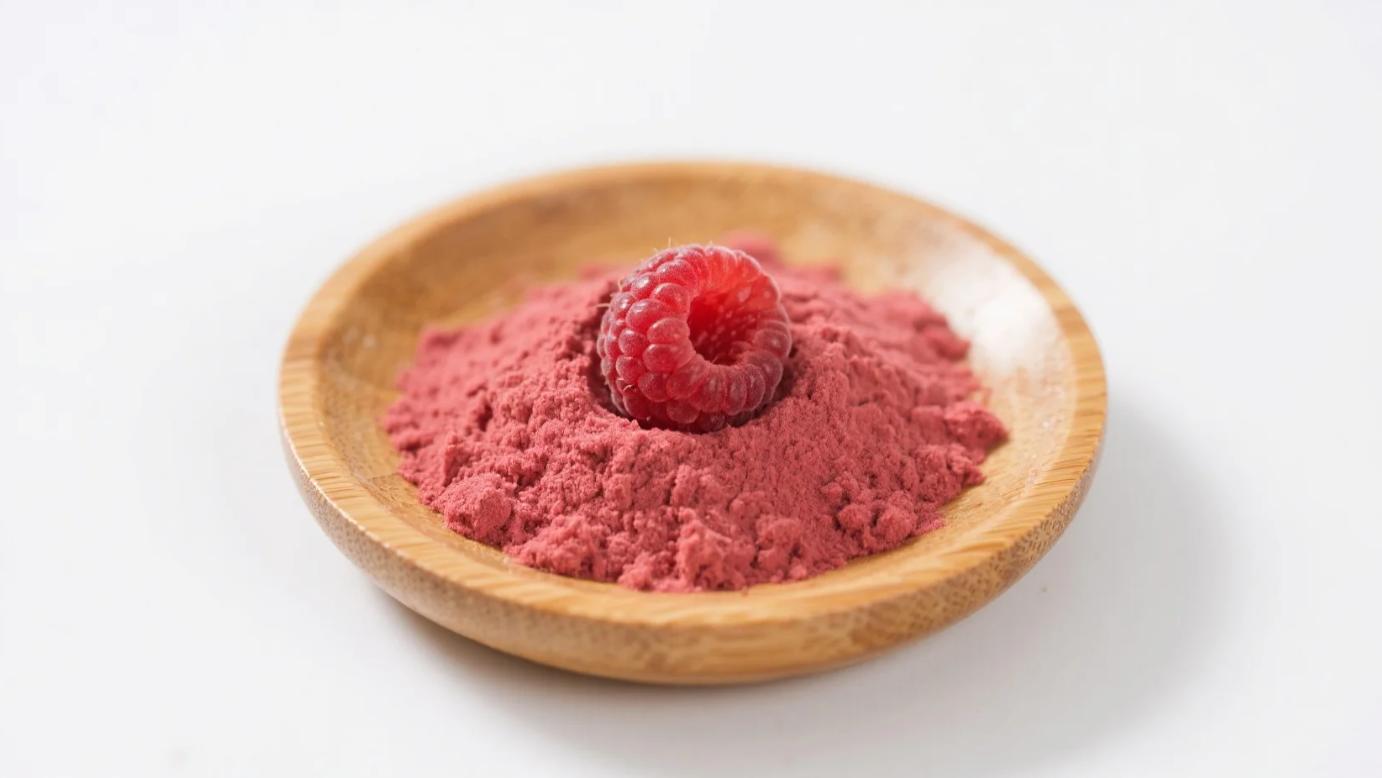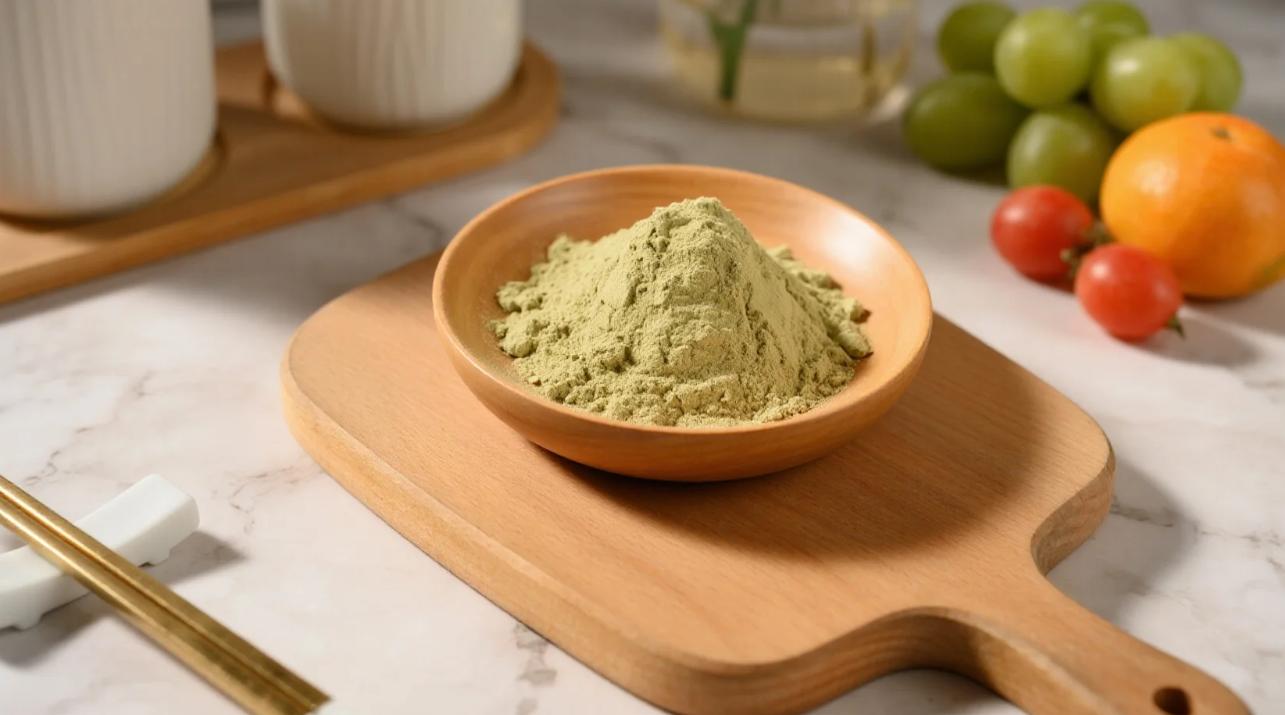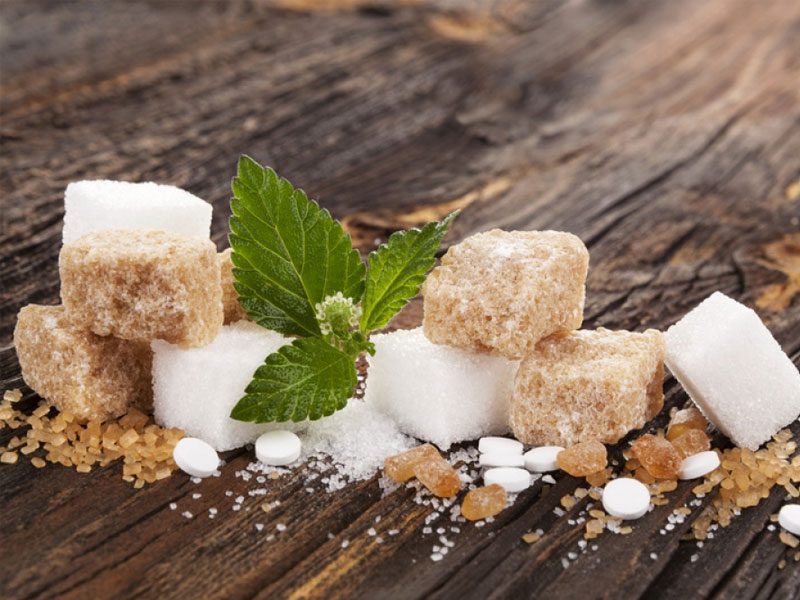Table of Contents
Raspberries aren’t just a sweet summer treat—they’re tiny crimson powerhouses packed with bioactive compounds that work wonders for your body. Whether you’re sprinkling organic raspberry powder into smoothies or stirring organic raspberry juice powder into teas, these vibrant superfoods deliver targeted benefits from brain to gut. Let’s dive into the research-backed effects and why “organic” maximizes their potency.
The Raspberry Effect: 5 Key Body Benefits
1. Antioxidant Armor
Raspberries boast one of the highest ORAC (oxygen radical absorbance capacity) scores among fruits—6,058 per gram. Their anthocyanins and ellagic acid neutralize free radicals, reducing oxidative stress linked to:
- Aging skin (UV damage, wrinkles)
- Chronic inflammation (arthritis, heart disease)
- Cognitive decline (Alzheimer’s risk)
2. Metabolic Boost
Raspberry ketones in organic raspberry powder enhance fat oxidation by 40% in animal studies. Combined with fiber (8g per serving), they stabilize blood sugar and curb cravings.
3. Hormonal Harmony
Natural phytoestrogens in raspberries may:
- Ease PMS symptoms (bloating, cramps)
- Support perimenopause transitions (hot flashes, mood swings)
- Improve uterine health (used in traditional “red raspberry leaf” remedies)
4. Gut Guardian
Prebiotic fibers in the powder feed Bifidobacteria, while the juice powder’s polyphenols reduce gut inflammation. A 2023 Gut Microbes study linked daily raspberry intake to 30% lower IBS symptoms.
5. Athletic Recovery
The juice powder’s high vitamin C (53% DV per tsp) repairs muscle tissue, while manganese in whole powder aids joint recovery post-workout.
Organic Raspberry Powder vs. Juice Powder: What’s the Difference?
| Factor | Organic Raspberry Powder | Organic Raspberry Juice Powder |
|---|---|---|
| Source | Whole berries (skin, seeds, pulp) | Cold-pressed juice, dehydrated |
| Fiber | 8g per serving (25% DV) | 1g per serving |
| Key Compounds | Ellagic acid, ketones, manganese | Anthocyanins, vitamin C, quercetin |
| Best For | Baking, gut health, hormones | Drinks, skin care, immune support |
Why Choose Organic?
Non-organic raspberries often carry pesticide residues like pyraclostrobin. Certified organic ensures:
✅ No synthetic chemicals or GMOs
✅ 30% higher antioxidant levels (organic stress response boosts phytonutrients)
✅ Wildlife-friendly farming (protects pollinators critical for berry growth)
How to Harness Raspberry’s Effects
- Metabolic Morning: Mix 1 tsp powder into oatmeal with chia seeds.
- Post-Workout: Blend juice powder into a banana-coconut water smoothie.
- Hormonal Balance: Steep powder with red clover tea for a phytoestrogen boost.
- Glowing Skin: Make a mask with juice powder, yogurt, and turmeric.
Who Should Be Cautious?
- Salicylate Sensitivity: Raspberries contain natural salicylates (aspirin-like compounds).
- Blood Thinners: High vitamin K may interact with medications like warfarin.
- Low-FODMAP Diets: Powder’s fiber may trigger bloating in some.
FAQs
Q: Can raspberries help with weight loss?
A: Yes! Fiber slows digestion, and ketones may enhance fat burning—but pair with a balanced diet.
Q: Fresh vs. powder—which is better?
A: Nutritionally similar, but powders offer year-round access and concentrated doses.
Q: Safe during pregnancy?
A: Powder in moderation is fine; avoid medicinal doses of raspberry leaf.
From balancing hormones to accelerating recovery, organic raspberry powder and juice powder are biohacking tools disguised as fruit. Whether you’re sipping, blending, or baking, these ruby-red wonders let you tap into nature’s pharmacy—one delicious sprinkle at a time.
Related Products
Organic Raspberry Powder
Form: PowderProcess Method: Freeze Drying, Spray drying


